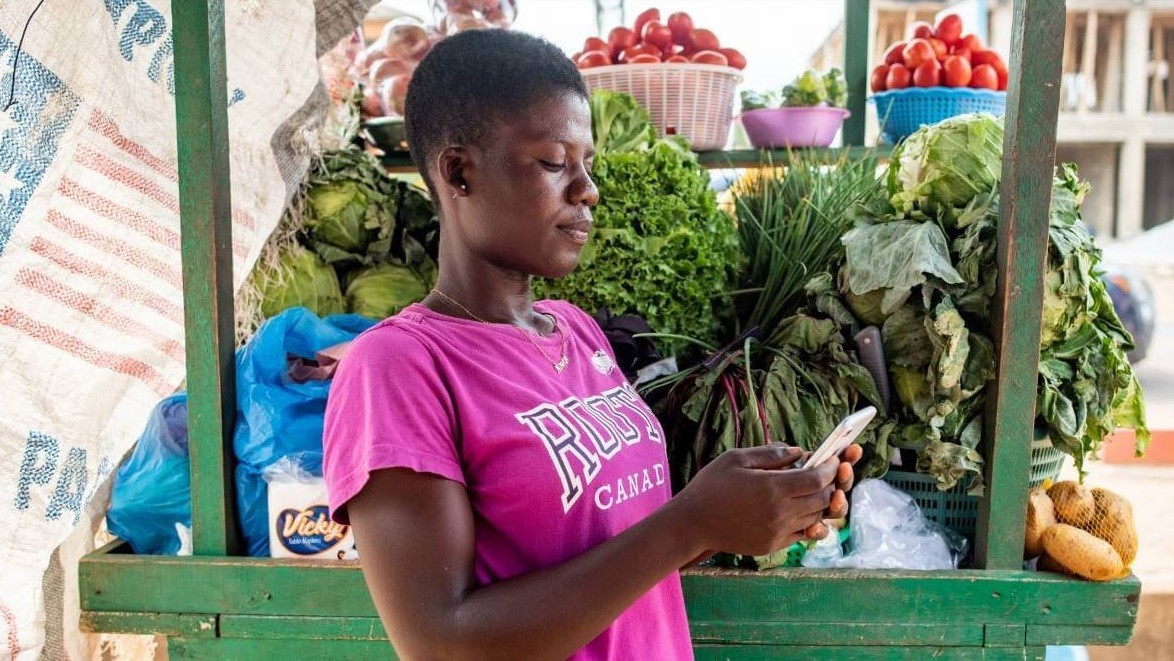The $1T cost of the digital gender gap
Barriers preventing women from accessing the Internet have cost low- and lower-middle income countries $1 trillion in GDP in the last ten years, according to new research from the World Wide Web Foundation and the Alliance for Affordable Internet.

Barriers preventing women from accessing the Internet and participating online have cost low- and lower-middle income countries (LLMICs) an estimated $1 trillion in GDP in the last ten years.
That's according to new research published on Monday by the World Wide Web Foundation and the Alliance for Affordable Internet (A4AI) titled: The Costs of Exclusion - Economic Consequences of the Digital Gender Gap.
The study measures how the digital gender gap – the difference between the number of women and men who can access the Internet – has affected economic output across 32 countries, the majority of which are in Africa.
In these countries there is still a substantial digital gender gap – with just over a third of women connected to the Internet, compared to almost half of men. Men are 21% more likely to be online than women globally, and that rises to 52% in the least-developed countries.
The report estimates that in 2020, the digital gender gap cost LLMICs a total of $126 billion. This represents a loss of more than $24 billion in tax revenues, funds that could be used to invest in education, health and infrastructure programs.
The African LLMICs included in the report are Algeria, Angola, Burundi, Cameroon, Côte d’Ivoire, DR Congo, Egypt, Ghana, Guinea, Kenya, Morocco, Mozambique, Niger, Nigeria, Senegal, Sudan, Tanzania, Tunisia, Zambia and Zimbabwe.

Source: Alliance for Affordable Internet 2021.
Barriers remain
A4AI said that various barriers prevent women and girls from accessing the Internet and participating online, including unaffordable devices and data tariffs, inequalities in education and digital skills, social norms that discourage women and girls from being online, and fears around privacy, safety and security.
"Few governments have implemented specific policies designed to remove a range of barriers that prevent women from using the Internet," the report said.
"Closing the digital gender gap is not just a moral cause, it is also an economic imperative. As the Internet becomes a more potent enabler for education, business, and community mobilization, a failure to deliver access for all means failing to realize everyone’s potential to contribute," said Catherine Adeya, Web Foundation director of research.
"Governments that enable women to fully participate in the digital revolution will unlock a wealth of creativity and productivity," she added.
In fact, closing the digital gender gap would add an estimated $524 billion in economic activity over the next five years, the report predicts.

Source: Alliance for Affordable Internet 2021.
"This report reveals just how expensive gender inequality is for all of us. Investing in a more inclusive digital future gives leaders a tremendous opportunity to promote economic growth while creating healthier societies by addressing inequalities in education and earning power," said Boutheina Guermazi, director of digital development at the World Bank and A4AI Advisory Council member.
"For governments looking to build a resilient economy as part of their COVID-19 recovery plans, closing the digital gender gap should be one of the top priorities."
Time to act
The report was launched at the 2021 Africa Summit for Women and Girls in Technology on Monday by Phumzile Mlambo-Ngcuka, founder of the Umlambo Foundation and former executive director of UN Women.
"In 2015 the world agreed on 17 ambitious global goals to build a better future. Whether on health, climate or the economy, we will not meet these goals until we tackle gender inequality. And we will not achieve gender equality until we eliminate this digital gap that keeps so many women offline and away from the opportunities the Internet provides. The time for governments to act is now," said Mlambo-Ngcuka.
Want to know more about digital inclusion in Africa? Check out our dedicated Digital Inclusion content channel here on Connecting Africa.
To promote a more inclusive digital economy, the report encourages governments to look holistically at the barriers that impede women's and girls' access to the Internet.
It urges governments to develop comprehensive broadband strategies that include infrastructure investment, transparent policy targets, and programs to deliver digital skills and literacy training, promote women's and girls' rights, and address safety and privacy concerns.
*Top image source: GSMA's Mobile Gender Gap Report 2021.
— Paula Gilbert, Editor, Connecting Africa


.jpg?width=700&auto=webp&quality=80&disable=upscale)
.jpg?width=700&auto=webp&quality=80&disable=upscale)
_(1).jpg?width=700&auto=webp&quality=80&disable=upscale)
_(1).jpg?width=700&auto=webp&quality=80&disable=upscale)

.jpg?width=700&auto=webp&quality=80&disable=upscale)

